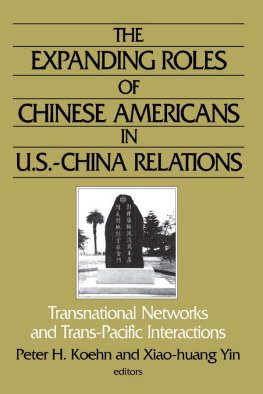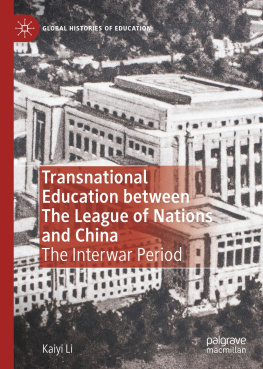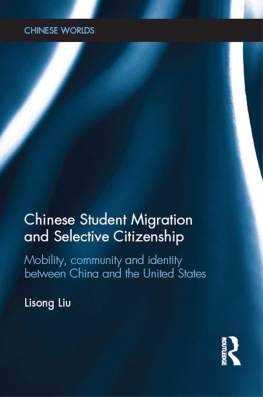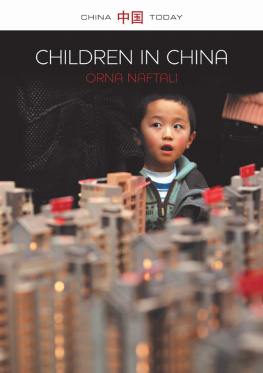Emerald Publishing Limited
Howard House, Wagon Lane, Bingley BD16 1WA, UK
First edition 2018
Copyright 2018 Emerald Publishing Limited
Reprints and permissions service
Contact:
No part of this book may be reproduced, stored in a retrieval system, transmitted in any form or by any means electronic, mechanical, photocopying, recording or otherwise without either the prior written permission of the publisher or a licence permitting restricted copying issued in the UK by The Copyright Licensing Agency and in the USA by The Copyright Clearance Center. Any opinions expressed in the chapters are those of the authors. Whilst Emerald makes every effort to ensure the quality and accuracy of its content, Emerald makes no representation implied or otherwise, as to the chapters suitability and application and disclaims any warranties, express or implied, to their use.
British Library Cataloguing in Publication Data
A catalogue record for this book is available from the British Library
ISBN: 978-1-78714-673-0 (Print)
ISBN: 978-1-78714-672-3 (Online)
ISBN: 978-1-78743-005-1 (Epub)
To the parents of the one-child generation who supported their childs dream, including mine.
Acknowledgements
This book is written a year after the completion of my PhD. Most of the material in the book is drawn from my PhD research conducted in England from 2013 to 2014. My life has changed during the writing of the book. I moved from England to China. I left my beloved quiet sweet Canterbury and started an academic post in Shanghai. Having lived in England for seven and a half years, the sudden return to and intense integration into a rapidly-developing China brought excitement and challenge. These border-crossing changes constantly remind me of the difficulties my research participants experienced when they first arrived in England as well as when some of them travelled back and forth between China and the UK in response to career pursuit and family responsibilities.
As I continue to analyse and edit the material, the support and kindness I received during the fieldwork period became vivid during each writing day. I still remember the first time I approached a potential participant for my research, asking her to go out of her way to central London, to spend two hours with no financial return and, more importantly, to tell a stranger about her past, her family, her fear and her hopes. Each time a participant said yes to my interview request, I felt a great sense of responsibility to guard her or his story.
The consent form at each interview gave participants the right to decline questions they did not feel comfortable with, and withdraw at any stage of the research. But no one declined to answer any question, even some of the very difficult questions which may have been considered rude in daily exchanges. Some participants went beyond their role to offer me help and encouragement. For example, Bolin let me stay in her house for two nights so I could do a few interviews in the surrounding area; twice I was late for interview appointment by almost an hour because of delayed trains, Wenbin and Liwen waited patiently for me; Rans parents took me to a restaurant for a meal after the interview so I did not have to leave during the peak traffic hour with an empty stomach. I thank my participants for their trust and willingness to share part of their lives with me, without whom this book would have been impossible.
My two supervisors at Kent, Professor Miri Song and Dr Joy Zhang, had been my guides when I first entered the field of sociological research. Miri is an inspirational woman and her influence on me goes beyond her role as a PhD supervisor. I am also fortunate to have known Joy, another inspirational and intelligent woman who set a great example of how to tell international audiences the stuff about China. I am grateful to have had Dr Johanna Waters and Professor Adam Burgess as my PhD examiners and their valuable suggestions helped to improve the book. Johannas on-going work in education-motivated migration continues to benefit me. I would also like to thank Kristina Gransson for letting me use a diagram inspired by her book; and for her interest in my work.
Writing a book while looking for a job can be sometimes frustrating. As most writers would appreciate, a long quiet writing period is heaven. Since my return to China in early 2017 my parents put me up for several months so that I could stay in my former bedroom. It was also the room where I wrote the dissertation for my Bachelors degree, eight years earlier. I am grateful that the Department of Sociology at the East China University of Science and Technology opened its door to me. This book benefited from the support of The Fundamental Research Funds for the Central Universities. The Head of School, Xuesong He, and the Head of Department, Hua Wang, were so understanding that they gave me enough time and flexibility to complete the book.
I cannot thank my friends and family enough for their unconditional love. I have, for many years, relied on Michaels intellectual and emotional support. I was very lucky to have people who cared about me and the project, so the writing process was less lonely. I would like to express my gratitude to Daniel, Titu and Suhasini, Yvette, Lili, Miaodan, Tony, Yan, Cora, Yang, Shanaj and Moon, Judy, Sarah, Jinger, Michael and Margaret, Paul, Merlin and Gilbert, Jan, Carmel, Shirley, Stacey, Kasia, Eva, Veronika and Virginia and Martin.
Finally, I am indebted to my editors, Philippa and Rachel at Emerald for their professionalism and prompt response to my various inquiries. I am grateful for the anonymous reviewers comments on the book proposal. I also appreciate the permission from John Wiley and Sons, Springer and Taylor & Francis for me to reproduce some of their published material.
Prologue
Birmingham, UK, 7 June 2014
You are more than welcome to stay in my place. Im making five-spices-slow-cooked beef tonight, the Chinese way! Bolin, in her late thirties, led me to her kitchen as she started cooking: I make Chinese food most of the time, even after having lived here for 11 years. Fortunately my husband has a Chinese stomach, and my sons like my cooking, too. I will never get used to British food!
Food is usually a topic which opens conversation in China. Here in Bolins Birmingham home, we quickly agreed upon the superiority of Chinese cooking over British cooking; this (perhaps biased) opinion is shared among most of the 33 Chinese migrants I interviewed in various parts of England.
So, are you used to other aspects of the British life now?
Well, Id say yes. My husband is English, my children have become just like any other British children. So Ill have to adapt. I know many Chinese friends who do not want to change their lifestyle, but I think if you decide to settle in a place, youd better change yourself to suit the local lifemakes life easier.







